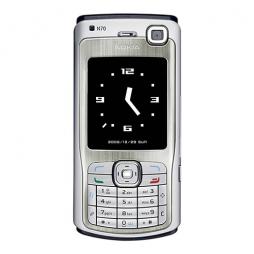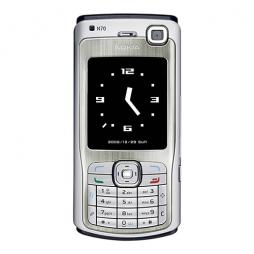Smartphones
Posted by AnneryanHeatwole on Sep 06, 2011
And, we are back! Today's Mobile Minute brings you coverage on cross-platform mobile messaging, increased network usage rates for MTN Uganda subscribers, strategies for implementing mobile money programs in post-conflict/disaster areas, and a demographic breakdown of U.S. smartphone users.
- ChatON, a new, cross-platform mobile messaging service from Samsung, brings texts, group chats, and multimedia sharing to a variety of handsets and operating systems. According to Samsung, the messaging service will work on both feature phones and smartphones, and will operate on a variety of platfroms including Android, Apple, and RIM/BlackBerry.
- On September 1st, MTN Uganda announced an increase of up to 100 percent of their network usage prices. The International Business Times reports, "MTN has increased the rate it charges customers for calls to another network by a third to 4 shillings a second while those for calls across its own network will double to 4 shillings. The changes take effect this weekend." The company says this was done to account for an increase in operating costs and as a response to inflation in Uganda.
Posted by AnneryanHeatwole on Apr 29, 2011
In today's Mobile Minute, we look at CGAP's coverage on branchless banking and micro-insurance, report on Nielsen and mobile privacy concerns, look at how the New York Times investigates Google's mobile approach and how smartphones are collecting data about cell towers and Wi-Fi hot spots. Lastly, a meetup for those interested in mHealth and ICT4D.
Interested in how branchless banking and micro-insurance can work together? GCAP has a roundup of three different organizations (from Ghana, the Philippines, and Kenya) that have paired mobile banking and micro-insurance in order to reach the unbanked and uninsured.
Posted by AnneryanHeatwole on Jul 27, 2010
Today's Mobile Minute brings you an interview with Indrani Medhi on her work with text-free interface technology, an SMS case study from Toronto's The Globe and Mail, a look at race and digital technology, Nokia's falling profits, and which mobile domains are most popular.
Posted by AnneryanHeatwole on Sep 02, 2009
Smartphones for Output-Based Aid data sheet 1458 Views
Abstract:
Providing effective health care in poor countries is an essential component to economic development and poverty reduction. Unfortunately donors supporting this endeavor often find that resources given are not matched by desired gains.
The output-based aid (OBA) model of financing seeks to address this by paying healthcare providers directly for services rendered instead of paying for the service provision up front. However, the program management is information intensive, necessitating much paperwork to track and reimburse payment claims. Smartphones (mobile phones with advanced features) have the potential to alleviate this burden.
Based on recent work in Uganda we have identified some of the constraints and realities of the context in which these devices could improve the quality and speed of payment claims. In collaboration with Marie Stopes International and Microcare, we propose to deploy a number of smartphones for use in the Uganda OBA project, with dual goals of reducing claim processing time and improving communication between the health care providers and the management agency running the OBA project.
Posted by PrabhasPokharel on Aug 20, 2009
As smartphones proliferate around the world, we ought to remain cognizant of what information we share on those phones with applications, application developers, advertisers and marketers. Phones are incredibly personal, always on, and always with most of us. As a result, they can reveal sensitive information. In fact, it is time for smartphone users to put pressure on application developers, platform providers, and eventually legislators to protect private and potentially sensitive information.
The Electronic Frontier Foundation recently published a paper on locational privacy. Because smartphones know where we are (using GPS, and if not, using applications such as Google’s My Location service), they can reveal a lot of information about activities, patterns of behaviour, and relationships we have.

